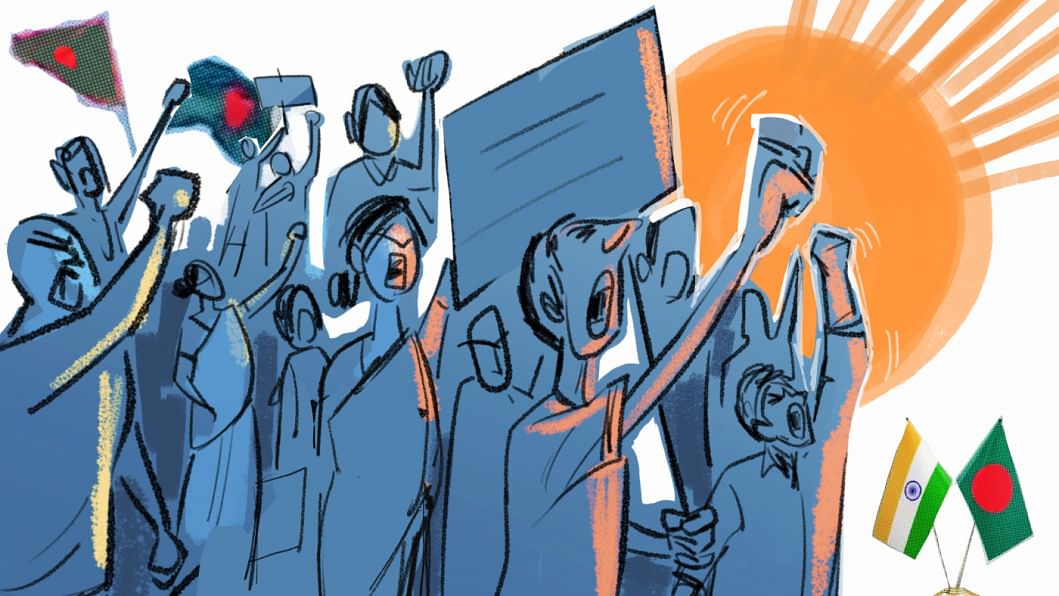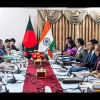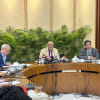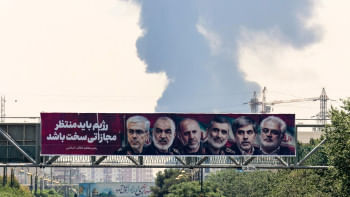Can we save our republic?

We can pat ourselves on the back for having been selected the "Country of the Year" by the Economist for overthrowing an autocrat. But for the role of the students and the youth, we might well not have been able to assert ourselves. Thus, the acknowledgement of the Economist is actually an acknowledgement of the power of the young generation, or Gen Z, to provide leadership in reverting the regression of the country, reclaiming its sovereignty and bringing it back to the path of prosperity.
However, the magazine ends on a cautionary note mentioning the bumpy road ahead, economically, politically, and indeed diplomatically. The British weekly commented that in 2025, "Bangladesh would need to repair ties with India and decide when to hold elections—first ensuring that the courts are neutral and the opposition has time to organise." A tall order indeed.
Not unsurprisingly, our achievement has been taken with derision from certain quarters across the border, in the land of our big neighbour, where the media have gone on overdrive in manufacturing, distorting and concocting news. They manufacture chaos, concoct stories of minority repression, and exaggerate stray incidents to inflate the matter. Admittedly, there have been incidents, albeit isolated, of harassment of minorities in Bangladesh. The difference between what happens in Bangladesh and the persecution of minorities in India is that while in Bangladesh it is done by individuals, the persecution of Indian Muslims is state-sponsored.
We have said many times that while it is one thing to see through a successful revolution, it is another thing to see that the ultimate goal, for which thousands were killed, maimed and disappeared, is achieved. And very few would disagree that the ultimate aim is to achieve an egalitarian society where everyone would be free to follow his or her own goals in a free atmosphere, and would be governed by the rule of law and not by that of men—where s/he can pursue the calling of their own choice and the people's representatives serve the people and not command them. We want a country with a true republican character, in short.
However, regaining our republic will not be an easy task. The path forward appears to be extremely fraught as one would have noticed from the seminal stages of the post-revolution period. We are still in the throes of the initial stage, trying to find our feet. It is the muck that we are struggling to remove, the muck that has accreted over the last 15 years in every sector. Reportedly, the economic highway that was flaunted by the Hasina regime was really a dirt road. The story of economic miracle was a myth. Data was manufactured by the Bangladesh Bureau of Statistics to present a rosy economic picture. These are not my words but the words of the economic task force appearing in their White Paper on Bangladesh economy.
But there are inimical forces both within and outside the country who are hard at work to reinstate the fallen tyrant by indulging in choreographed movements in some sectors. Various cadres of the civil service are agitating for their own "cause." It seems that suddenly August 5 has generated the rise of a plethora of demands from various sectors, which had not been seen in the last 15 years.
It also seems that there still are a significant number of sympathisers within the administration who are lying in wait for the opportune moment to create chaos and numb the administration. One suspects the deep state is at work, backseat-driving the government. Otherwise, how does one explain such a large number of Awami Leaguers finding their way out of the country? And we saw another physical manifestation of this in the fire incident at the Secretariat. Everything points to a well-planned sabotage work. And this is not the last of such acts of sabotage. The warnings are clear that hostile forces are at work.
The question is, how do we safeguard our revolution, the first being frittered away by a despot who had no love lost for the people of Bangladesh and felt little obligation for the country?
The only way to preserve our newly acquired freedom is to put power where it belongs—to the people. And that brings us to the crux of the issue, that of reforms and election. So far, our base has been weakened. The civil administration and the judiciary, not to speak of the security sector, have been affected by the blatant regime of politicisation by Hasina. Can we proceed with business as usual with a rickety base to build on? The character of the state institutions would have to be restored before the next move in this respect. And that can be possible if we have people with impeccable antecedents and strong moral fibre to run these institutions. But by the same token, laws must be enacted to ensure that state institutions cannot be influenced by the government of the day.
Can we also proceed without holding to account people responsible for gross violations of human rights? And human rights are violated in more ways than one. Can those who have siphoned off billions of dollars of the country's wealth be allowed to go free? And those people include Hasina, her family members, and her cronies in the business world. Who will answer for the extrajudicial killings and the killing of the students in the recent uprising?
Can those who destroyed democracy, deprived the people of their right to choose their representatives, and made a mockery of parliament and the system be allowed to participate in future democratic exercises without paying for their misdeeds?
We would like to end with a brief comment on the said report of the Economist. Bangladesh would need to repair ties with India, it says. Let me stress that it is not for Bangladesh to repair ties with India; rather the opposite is true. Bangladesh has done nothing to impair the bilateral relationship. India has, on the other hand, not only given shelter to a person who stands accused of gross violation of human rights, corruption and other misdeeds in the country's court of law; she is using the soil of India to conspire against Bangladesh.
Since the fall and fleeing away of the autocrat, Indian political leaders have made threatening comments about Bangladesh. Our folly has been that we did not register our protests except for one instance. It is a pity that India has failed to see the reality and to honour the wish of the people of Bangladesh.
The most important thing that is the call of the hour is national unity—this is the first safeguard for our Second Victory.
Brig Gen Shahedul Anam Khan, ndc, psc (retd) is a former associate editor of The Daily Star.
Views expressed in this article are the author's own.
Follow The Daily Star Opinion on Facebook for the latest opinions, commentaries, and analyses by experts and professionals. To contribute your article or letter to The Daily Star Opinion, see our guidelines for submission.

 For all latest news, follow The Daily Star's Google News channel.
For all latest news, follow The Daily Star's Google News channel. 











Comments